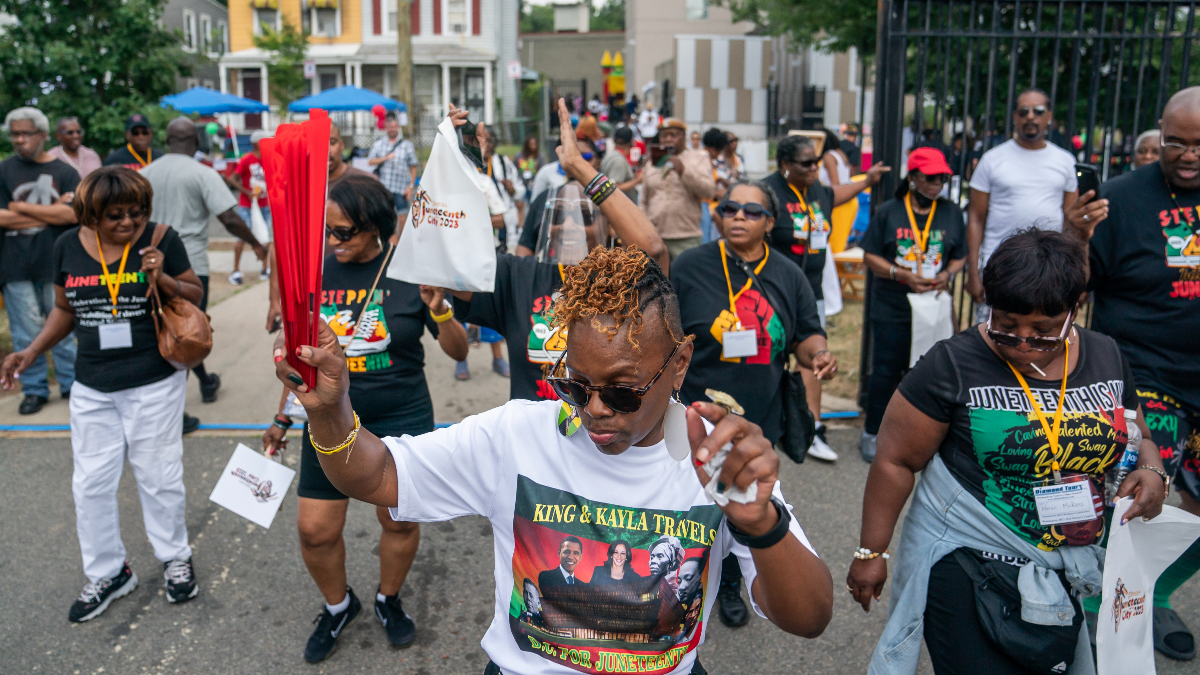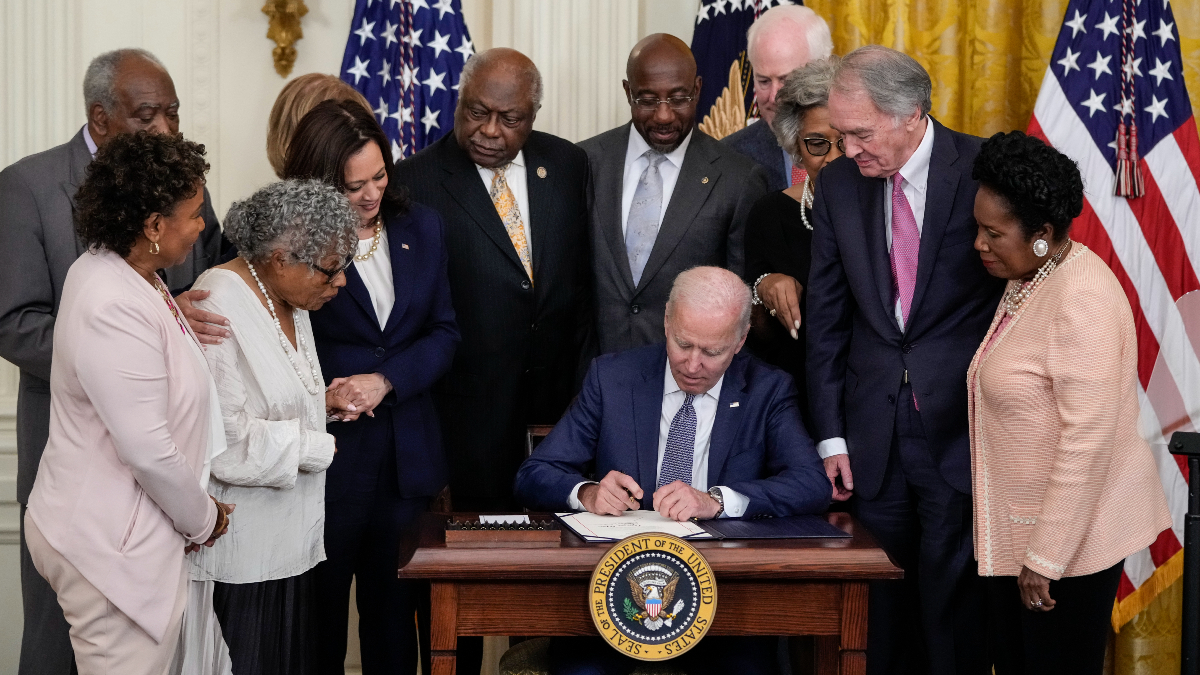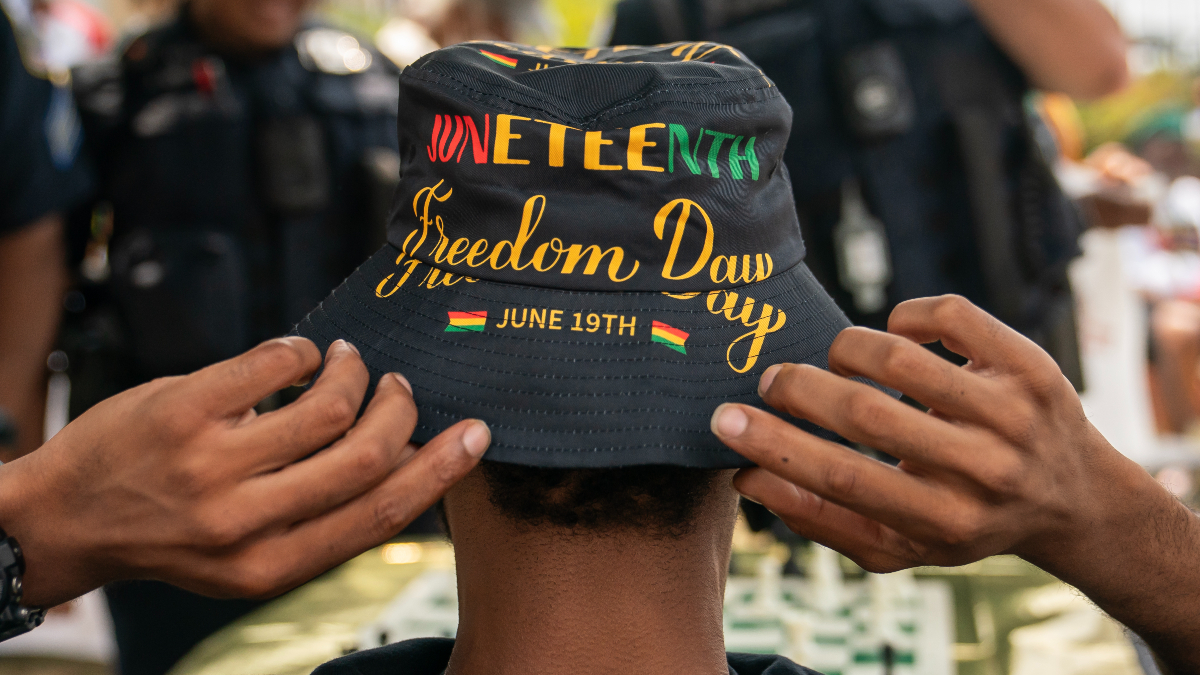The United States’ most recently proclaimed national holiday is still fresh for many of the country’s citizens, but in reality it stretches back more than a century.
Juneteenth only became a federally recognized holiday a few years back, in 2021, when President Joe Biden signed a bill officially adding it alongside longstanding national holidays. June 19 is now a widely-recognized holiday — as it should have been all along — but a legacy of racism and ignorance leaves many Americans without a clear idea of what the holiday celebrates. Most people have at least a vague awareness of the holiday, but — particularly for those living in northern states — Juneteenth celebrations are still fresh, and leave some people confused. The history of Juneteenth, or “Freedom Day,” is written into our nation’s wrought legacy, and celebrates the true end to slavery in the United States.
Juneteenth’s origins

Juneteenth marks the finite end of slavery in the United States, and has served as a vital holiday in southern states for more than 100 years now. In many northern areas, however — where some people believe slavery abruptly ended, all at once, on Jan. 1, 1863 — it’s a brand-new holiday, and one that didn’t come with a clear instruction manual.
In the south, where the Confederacy continued to hold ground for several years after the Emancipation Proclamation was issued, slavery continued long after the North gained the upper hand in the Civil War. Texas became known as a safe haven for slavery in the years after the Union celebrated its victory, and it took more than two years for troops to reach the state and bring Lincoln’s presidential proclamation to all of America’s citizens.
It wasn’t until mid-June — and, for some, several months later — that slavery truly came to an end in the South. June 19, 1865 marks the date on which freedom came to all (or at least most) of America’s former slaves, after troops arrived in Galveston, Texas and took control of the state. The date is thus celebrated as “Jubilee Day,” according to History.com, or — in more recent years — as Juneteenth, a word that combines the month, June, with the date, 19th.
Slavery was officially abolished around the nation later in 1865, when — in December — the 13th Amendment was finally written into the Constitution. The amendment states that “Neither slavery nor involuntary servitude, except as a punishment for crime whereof the party shall have been duly convicted, shall exist within the United States, or any place subject to their jurisdiction.”
When did Juneteenth become a holiday?

The first state to recognize Juneteenth as an official holiday was fittingly Texas, the state in which slavery persisted longest. The state acknowledged the vital holiday several decades ahead of the nation as a whole, marking June 19 a state holiday all the way back in 1979. It should have happened a good century earlier, of course, but progress is progress.
It took another 40 years for the nation to catch up, but — finally — in 2021 Joe Biden established the date as a federal holiday. As of June 17, 2021, Juneteenth is recognized as a holiday around the nation, a fact that allows everyone, everywhere, to finally celebrate the definitive end of slavery in this nation.

